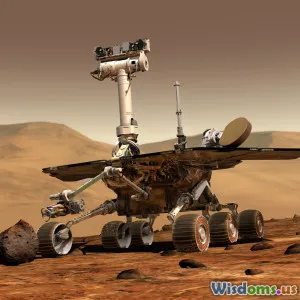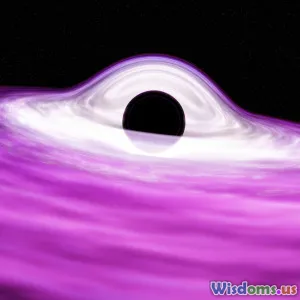
How Telescopes Revolutionized Our View of Space
5 min read Explore how telescopes transformed our understanding of the cosmos, revealing the wonders of space from distant galaxies to exoplanets. (0 Reviews)
How Telescopes Revolutionized Our View of Space
The universe has always been a source of fascination for humanity, inspiring countless questions about our place within it. For centuries, our understanding of the cosmos was limited by what we could see with the naked eye. The invention of the telescope marked a pivotal moment in the history of astronomy, fundamentally altering our perception of space and opening up new avenues for exploration.
The Birth of the Telescope
The first telescopes were developed in the early 17th century, with figures like Galileo Galilei playing a crucial role in their advancement. Galileo’s use of the telescope allowed him to observe celestial bodies such as Jupiter and its moons, the phases of Venus, and the rings of Saturn. These observations provided concrete evidence that not everything revolved around the Earth, challenging the geocentric view that had dominated for centuries.
Expansion of Our Cosmic Horizon
As telescopes evolved, so did our understanding of the universe. The introduction of larger and more powerful telescopes, such as the Hubble Space Telescope launched in 1990, allowed astronomers to peer deeper into space than ever before. Hubble's stunning images of distant galaxies, nebulae, and star clusters have not only enriched our understanding of cosmic phenomena but also ignited public interest in astronomy.
For example, Hubble's Deep Field images revealed thousands of galaxies in a tiny patch of sky, showcasing the vastness of the universe and suggesting that there are likely billions of galaxies beyond our own Milky Way. This shift from a solar system-centric view to a galaxy-centric perspective has been truly revolutionary.
Discovering New Worlds: Exoplanets and Beyond
One of the most exciting advancements in telescope technology is the ability to discover exoplanets—planets located outside our solar system. Instruments like the Kepler Space Telescope have utilized photometry to detect the slight dimming of stars caused by planets passing in front of them. This method has led to the discovery of thousands of exoplanets, some of which lie within the habitable zone of their stars, raising tantalizing possibilities about extraterrestrial life.
The Role of Ground-Based Telescopes
While space-based telescopes like Hubble offer an unobstructed view of the cosmos, ground-based telescopes are equally important. The development of adaptive optics technology has allowed ground-based observatories to correct for atmospheric distortion, producing images that rival those from space. Facilities like the Keck Observatory in Hawaii utilize this technology to explore everything from the surfaces of planets in our solar system to the composition of distant galaxies.
Future of Telescopes and Astronomical Discoveries
Looking ahead, the future of telescopes promises even more revolutionary discoveries. The James Webb Space Telescope, set to launch soon, aims to explore the universe in unprecedented detail, with a focus on the formation of stars and galaxies. Its infrared capabilities will allow astronomers to observe celestial phenomena that are currently beyond our reach.
Conclusion
Telescopes have truly revolutionized our view of space, allowing us to explore the cosmos in ways that were once unimaginable. From the early observations of Galileo to the groundbreaking discoveries made by Hubble and upcoming instruments like the James Webb Space Telescope, these remarkable tools have expanded our understanding of the universe and our place within it. As technology continues to advance, the possibilities for future exploration are limitless, inviting us to dream bigger and delve deeper into the mysteries of the cosmos.
Rate the Post
User Reviews
Popular Posts





















